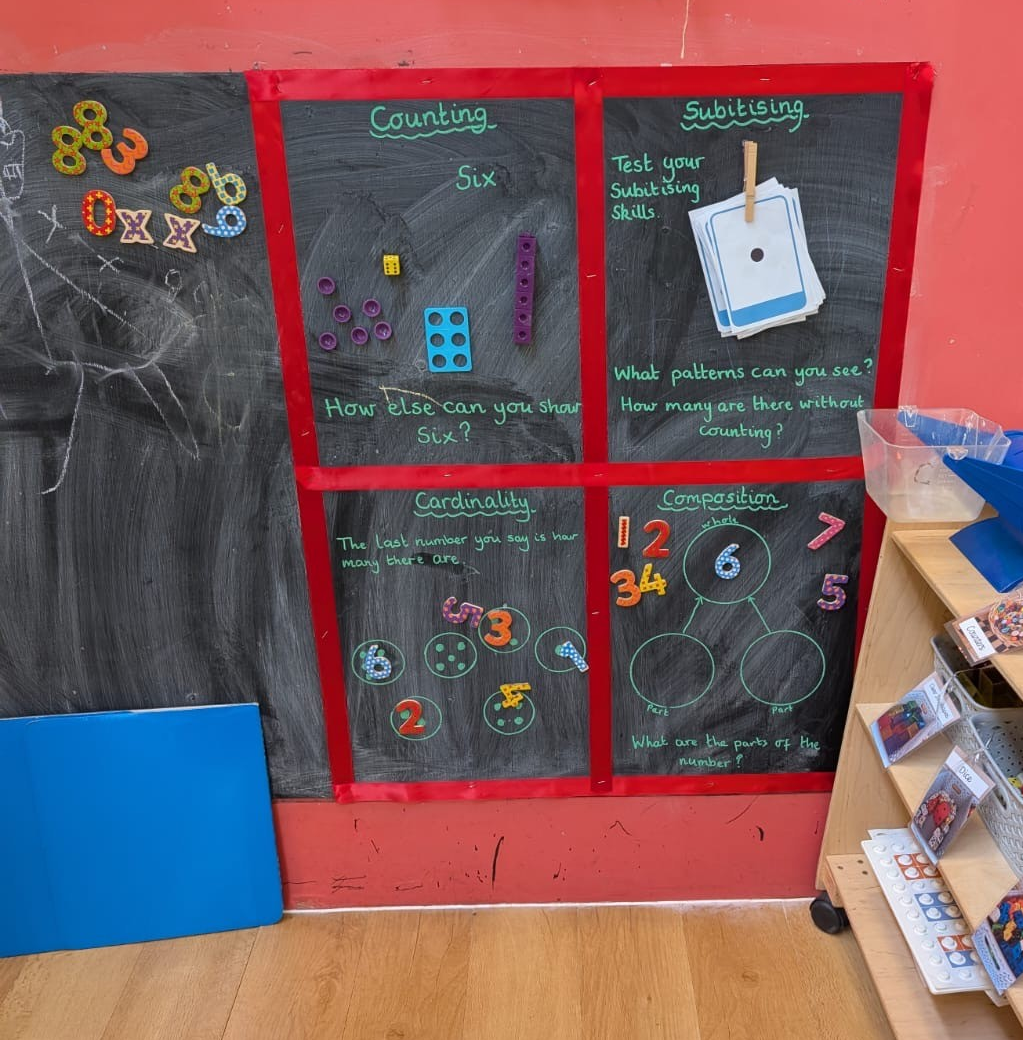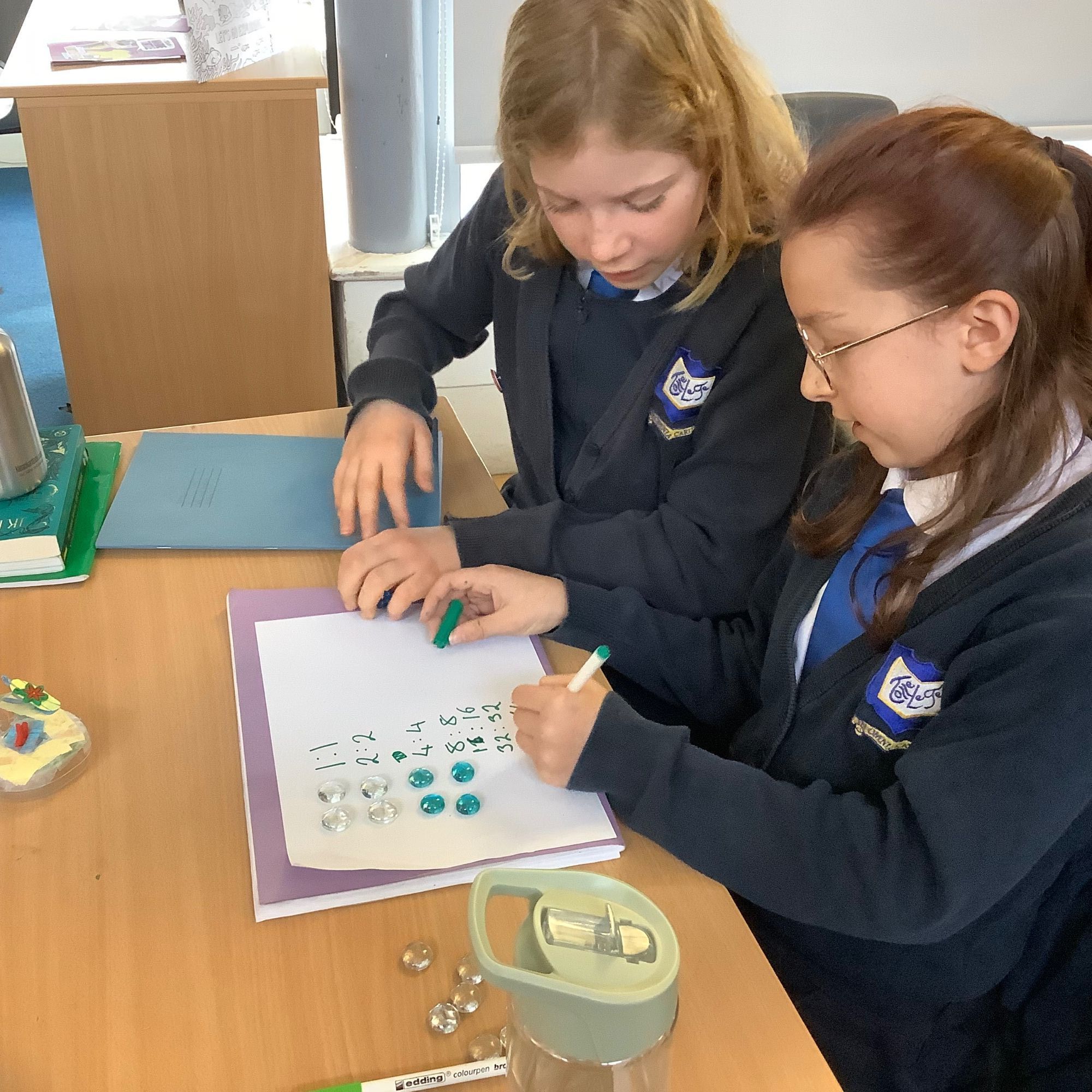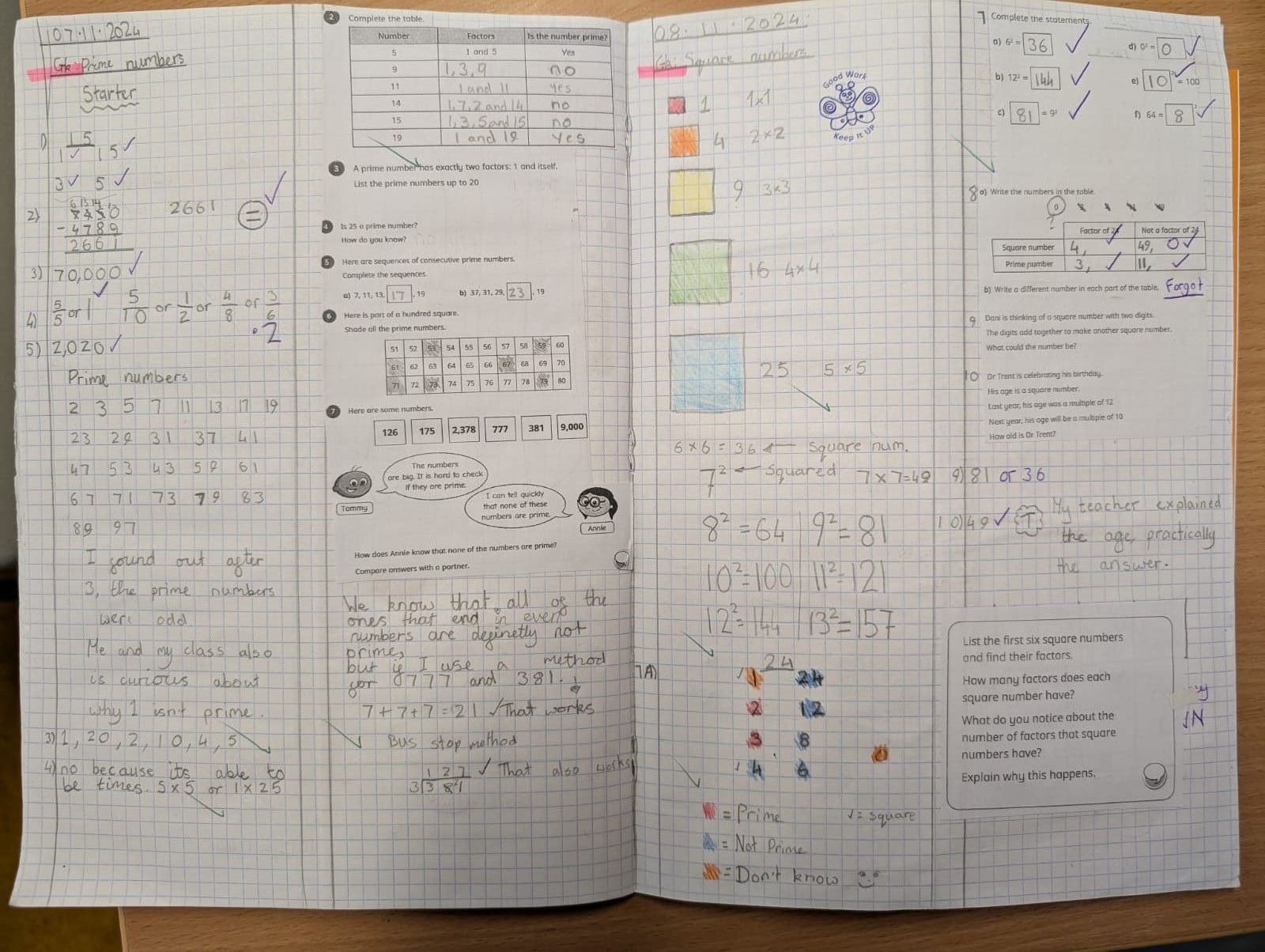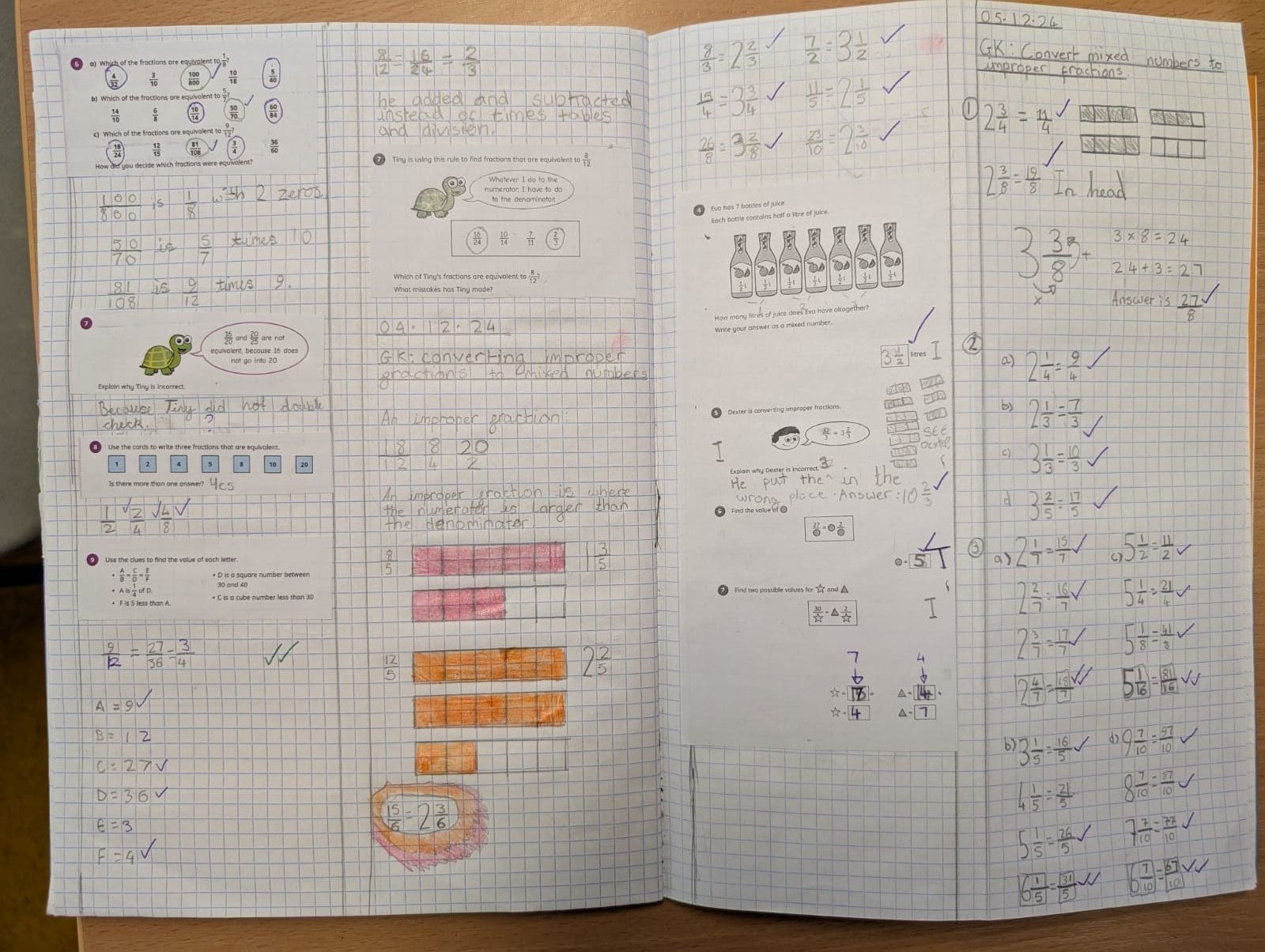Maths
Intent
We hope that the children at St Augustine’s will enjoy their Maths lessons and will develop a confidence to approach mathematics in real life and solve mathematical problems. We believe the purpose of mathematics is not solely to gain classroom-based skills, but to develop enquiry and reasoning skills and inquisitive minds that will develop through life. We want our children to understand, as they progress through the school, that mastering maths is essential to everyday life and will help in their future education and careers. Our aim is to ensure that all children become fluent in the fundamentals of mathematics and can apply this to reasoning and problem solving.
So, our aim is to ensure that all pupils:
- Become fluent in the fundamentals of mathematics, including through varied and frequent practice with increasingly complex problems over time, so that pupils develop conceptual understanding and the ability to recall and apply knowledge rapidly and accurately.
- Reason mathematically by applying their knowledge and critical thinking to select the correct strategy to solve a given problem.
- Can solve problems by applying their mathematics to a variety of routine and non-routine problems with increasing sophistication, including breaking down problems into a series of simpler steps and persevering in seeking solutions.
Implementation
To ensure whole consistency and progression, the school uses the White Rose Scheme of work that is matched to the DFE’s National Curriculum. Alongside White Rose Maths, we use:
- Mastering Number in KS1, (To develop secure knowledge and understanding of place value and number).
- Times Table Rock Stars, (KS2 to supplement the learning of multiplication tables).
- NCTEM Mastery resources, (this compliments our work with the Kent & Medway Maths Hub).
Mathematical vocabulary is an essential part of each lesson-the children need to understand this within the area they are studying and be able to make rich connections across other areas within this subject. Each lesson provides children with the opportunity to reason through their ideas, use their mathematical language to explore a line of enquiry to solve routine and non-routine problems.
Teachers will use assessment for learning to cater for the individual needs of the children who will be given the opportunity to:
- Review their learning, (through the use of flashback 4)
- Respond to marking by correcting their work.
- Extending their learning through developmental marking.
- Discuss their learning with others using mathematical vocabulary.
- Use manipulatives to deepen their understanding of concrete learning.
- Use pictorial representation of maths to support as a strategy to develop mastery.
In addition to the above teachers use the White Rose End of Unit assessments to inform their future planning and NFER tools are used 3 times a year to give a formative assessment of standards in mathematics across the school.
Impact
We measure the impact of our curriculum through monitoring of progress in books and formal assessments three times a year.



